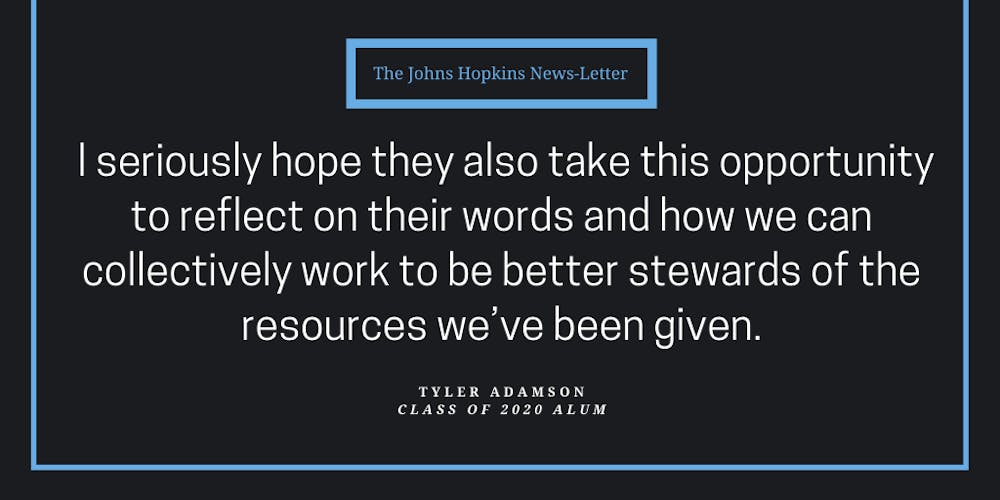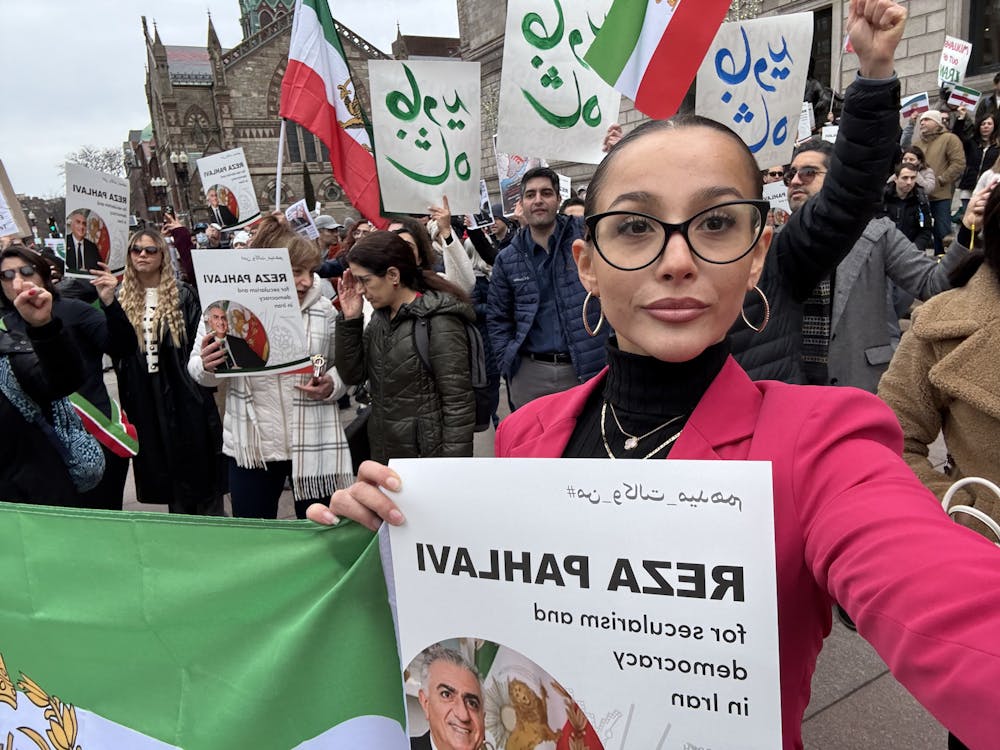As an alum, Baltimore resident and friend to current graduate students at Hopkins, let me begin with this: The adaptability and creativity that the Graduate Representative Organization (GRO) has shown through the COVID-19 pandemic is truly laudable. From virtual cooking classes and coffee hours to giveaways and virtual esports tournaments, the GRO has really stepped up to support and accommodate students during this tumultuous year.
That said, I’ve recently noticed an all but unfortunate trend that calls for a revisit of some of the GRO’s words after the tragic murders of George Floyd and Breonna Taylor sparked worldwide protests last summer.
“During this incredibly important moment, the GRO stands in solidarity with those most vulnerable,” it wrote. “It is in our hands to be looking for ways we can contribute to the fight against this deep-rooted systemic racism, and all of us have a role to play in this process.”
Reflecting on these words and the events that the GRO has put on throughout this past year, it is important to highlight that the owners of many of the businesses the GRO has partnered with during COVID-19 are white.
This is despite growing evidence that Black and brown-owned businesses are bearing the brunt of this pandemic. 41% and 32% of Black and Latinx-owned businesses in the country closed, respectively, compared to just 17% of white-owned businesses. This divide is forming even though many of these organizations and businesses are the ones on the front lines serving their communities during this difficult time.
Last summer, the GRO described how it planned to fight against systemic racism.
“We want to call attention to the other ways one can make an impactful contribution, including: signing petitions, calling representatives and lawmakers, and self-education,” it wrote. “We hope the Homewood grad community takes this opportunity to reflect on such matters and how we can collectively work to better ourselves, our community, and the world we share.”
Given the GRO’s dedication to serving the grad community, I seriously hope it takes this opportunity to reflect on its words and works to be a better steward of the resources it has been given. This could be providing a financial incentive for student groups to buy from minority-owned businesses, partnering with local schools to provide mentorship and tutoring or monthly match-donation programs for local community-based organizations, to name a few ideas. HopkinsLocal is good resource to help begin this process, though I believe the GRO has much more potential.
In light of recent mass shootings in Atlanta and Boulder and the murders of Daunte Wright and Adam Toledo, I hope we don’t forget that this isn’t just about the GRO or graduate students, either. In the Baltimore community, marginalized groups are continually forgotten by organizations whose vocal support is not evidenced by their actions. I encourage all students and alumni to reflect deeply and consider how we’re working towards supporting those among us who need it during this difficult time, in whatever way we can.
Lastly — and I can’t emphasize this last part enough — we cannot allow ourselves to treat supporting local minority businesses as the next “trend.” When these tragic events occur, our guilt motivates us to immediately support communities directly impacted. However, instead of harnessing this energy to push further for bigger change, we let it recede until the next untimely event.
It should not require the loss of another life to dedicate the time and resources we have toward supporting one another, especially considering the long history of exploitation and discrimination these communities have faced.
Gennette Cordova put it best during last summer’s protests, arguing that just as "supporting Black people in their fight against oppression should never be a trend, neither should supporting minority businesses,” lest we market and commodify the deaths of our fellow human beings. Standing in solidarity with the most vulnerable starts with those with privilege at every step of the way.
Tyler Adamson, a member of the class of 2020, is a public health professional and resident of Charles Village from Vancouver, Wash.





